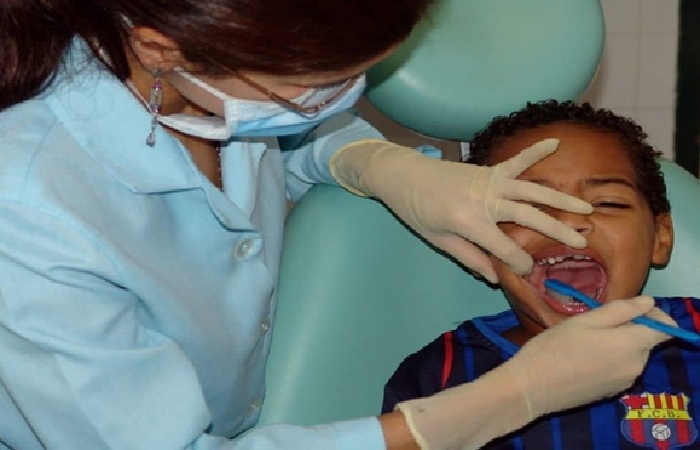Teeth whitening is a standard procedure offered by cosmetic dentists in Blackburn. Although it has been proven to be safe and effective, many people still harbour misconceptions about teeth whitening due to rumours they’ve heard or misinformation passed along through the years.

This article will address the most prevalent teeth whitening myths that are circulating today.
-
Myth: Whitening causes teeth to become brittle and crack.
Fact: There is no evidence that whitening causes increased brittleness or cracking of teeth. It’s been seen that teeth become more resistant to future staining after the whitening process because they’re less porous than before treatment.
-
Myth: Teeth that are already brittle will become more likely to fracture.
Fact: Just like myth #1, it’s not true that teeth with increased brittleness are any more prone to fracture. Fluoride actually strengthens enamel, which is the hard substance on the surface of your teeth.
-
Myth: Bleaching causes loss of tooth structure, sensitivity and nerve damage.
Fact: Although it’s true that in some cases, teeth have become more sensitive after whitening, the most common reason for this development is overexposure to bleaching materials. Overbleaching of the teeth causes them to be more porous than they were before treatment. Overexposure can be easily prevented by using custom-fitted trays and bleaching under the supervision of a dental professional.
4 Myth: Teeth whitening only has cosmetic benefits – it doesn’t improve health or function.
Fact: In some cases, teeth stained due to extensive use of tetracycline may become more discoloured after whitening. However, in most cases, teeth are better off after bleaching because they appear whiter, making them look healthier overall. Additionally, studies have shown that patients who undergo tooth whitening can chew food more efficiently, resulting in improved digestion and overall health.
-
Myth: Teeth whitening will require multiple treatments.
Fact: This is false. In most cases, people experience a very noticeable difference in the colour of their teeth after one treatment with a whitening product that’s been appropriately applied. However, patients who don’t see an improvement right away may need a second session if they did not use custom-fitted trays during the first treatment or overexposed their teeth to bleaching materials.
-
Myth: Teeth whitening will only work on natural teeth, not veneers or caps.
Fact: The effectiveness of tooth whitening has nothing to do with whether a dental procedure is performed before bleaching or whitening occurs. In other words, veneers and caps can be bleached just as naturally-occurring teeth can.
-
Myth: Teeth whitening is a painful process that a dentist should only do.
Fact: While it’s possible for teeth to become slightly sensitive after treatment. Today’s products contain a much lower concentration of hydrogen peroxide than in the past. Because of this, the majority of patients experience little to no discomfort when undergoing teeth whitening procedures. Additionally, dental professionals can administer a numbing agent that will eliminate any pain associated with bleaching.
-
Myth: Bleaching strips must be used to achieve results, and they’re costly.
Fact: While it’s true that bleaching strips are the most common whitening method used today. This type of product does not have to be purchased. Dentists can apply customized bleaching trays that will fit over your teeth flawlessly. For a fraction of the price that you’d pay for commercial products.
-
Myth: Teeth must be sensitive to whiten them successfully.
Fact: In fact, teeth must never be sensitive if a bleaching product is used. Sensitivity is a very common reason for failure when using a commercial whitening strip or tray. If this occurs, you’ll have to wait until your enamel becomes harder before trying again. If you’re not sure whether your teeth are sensitive, talk to your dental professional for more information.
-
Myth: Only adults can undergo teeth whitening procedures.
Fact: While most people who bleach their teeth are in their twenties or thirties, this treatment is safe and effective in people of all ages – even children whose teeth are still developing. While younger children may not notice dramatic results, older kids and teens will likely be thrilled with the difference whitening can make in their appearance.
This article is aimed at informing you of common misconceptions about [teeth whitening]. You must consult your dentist before starting any bleaching regimen because only they can give you personalized advice about which whitening system will be best for your individual needs.
